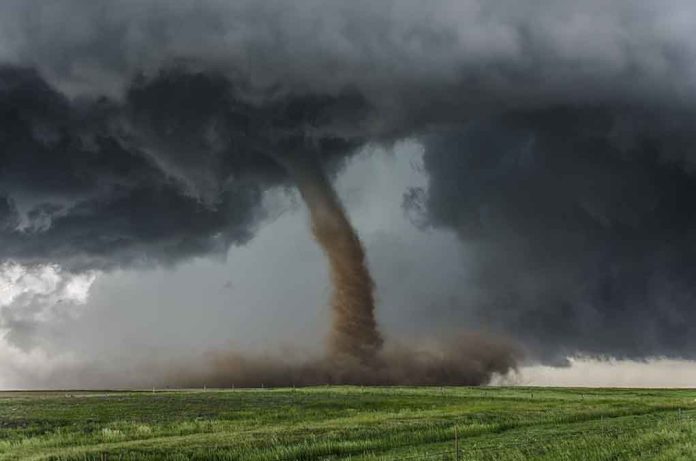
The DOJ’s legal actions against several states’ climate policies spark tension between state autonomy and federal oversight.
Key Takeaways
- The DOJ has taken legal action against Hawaii, Michigan, New York, and Vermont over climate laws deemed unconstitutional.
- Lawsuits aim to block states from suing fossil fuel firms for climate damages.
- The DOJ cites the federal Clean Air Act as being preemptive of state laws.
- States plan to defend their climate initiatives against federal challenges.
Federal Lawsuit Against State Climate Laws
The Department of Justice (DOJ) initiated lawsuits against the states of Hawaii, Michigan, New York, and Vermont. The DOJ argues that these states have implemented climate policies that conflict with federal regulations and threaten national security. The lawsuit claims these state laws are unconstitutional, as they undermine the federal government’s efforts to maintain a cohesive energy policy.
At the heart of the dispute is whether individual states have the authority to impose their own climate regulations that go beyond federal standards. The DOJ argues that these actions disrupt national energy security and infringe on federal powers.
Justice Department Files Complaints Against Hawaii, Michigan, New York and Vermont Over Unconstitutional State Climate Actions
🔗: https://t.co/4vJqkv6NWS pic.twitter.com/alP9wLC2rh
— U.S. Department of Justice (@TheJusticeDept) May 1, 2025
Challenges to State Initiatives
Hawaii and Michigan face federal challenges over their attempts to hold fossil fuel companies accountable for climate change damages. The states aim to proceed with lawsuits in state courts. Despite DOJ interventions, Hawaii’s Attorney General Anne Lopez and Michigan Attorney General Dana Nessel expressed their determination to continue fighting against fossil fuel companies.
“These burdensome and ideologically motivated laws and lawsuits threaten American energy independence and our country’s economic and national security,” said Attorney General Pam Bondi.
New York and Vermont have also enacted “climate superfund” laws. These laws aim to impose financial liability on energy firms for their contributions to climate change. New York seeks $75 billion in damages, a move the DOJ contends exceeds state jurisdiction.
The Trump administration is fighting back against several blue states for their attempts to enact left-wing climate goals through litigation against oil and gas companies. | @jameslynch32 https://t.co/ZBVgsHUY4f
— National Review (@NRO) May 2, 2025
State and Federal Tensions
States like New York, Michigan, and Vermont are mobilizing to defend their climate policies. Vermont’s law, in particular, allows the state to recover funds for climate adaptation projects. Governors and attorney generals from these states have committed to upholding these initiatives, challenging what they label as federal overreach.
According to Attorney General Pam Bondi, “The Department of Justice is working to ‘Unleash American Energy’ by stopping these illegitimate impediments to the production of affordable, reliable energy that Americans deserve.”
As this issue underscores the broader conflict over climate legislation, it also brings to light the enduring struggle between state independence and federal authority. This legal confrontation not only affects environmental policy but also how energy policies are coordinated across the nation.
Sources:
- https://www.foxnews.com/politics/doj-sues-four-blue-states-over-unconstitutional-climate-laws-threatening-us-energy-security
- https://www.reuters.com/legal/trump-administration-sues-michigan-block-planned-climate-change-lawsuit-2025-05-01/
- https://www.justice.gov/opa/pr/justice-department-files-complaints-against-hawaii-michigan-new-york-and-vermont-over
- https://www.theepochtimes.com/us/doj-sues-hawaii-michigan-vermont-and-new-york-over-climate-laws-5851036










